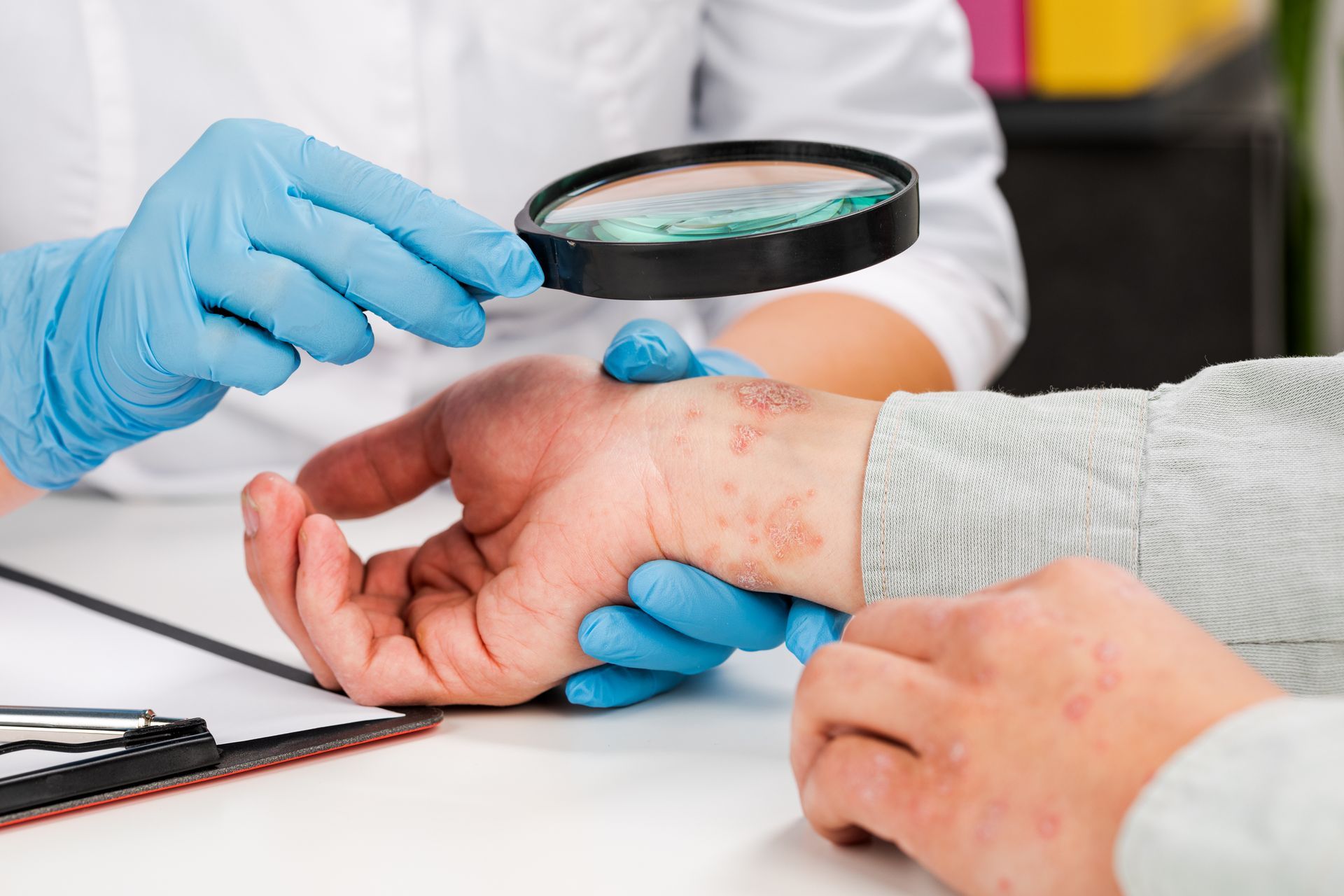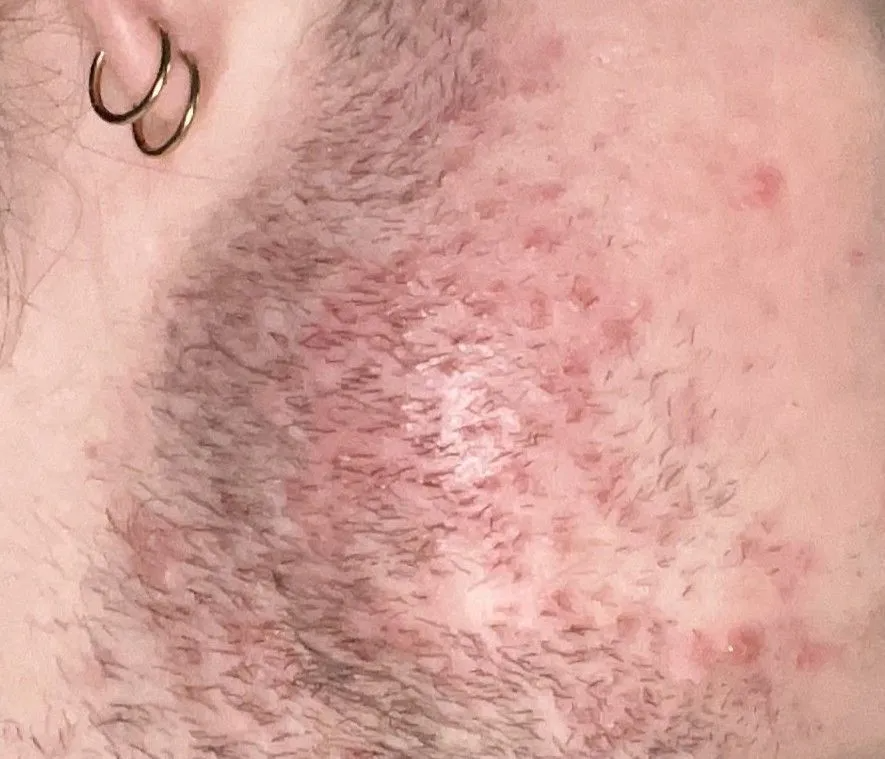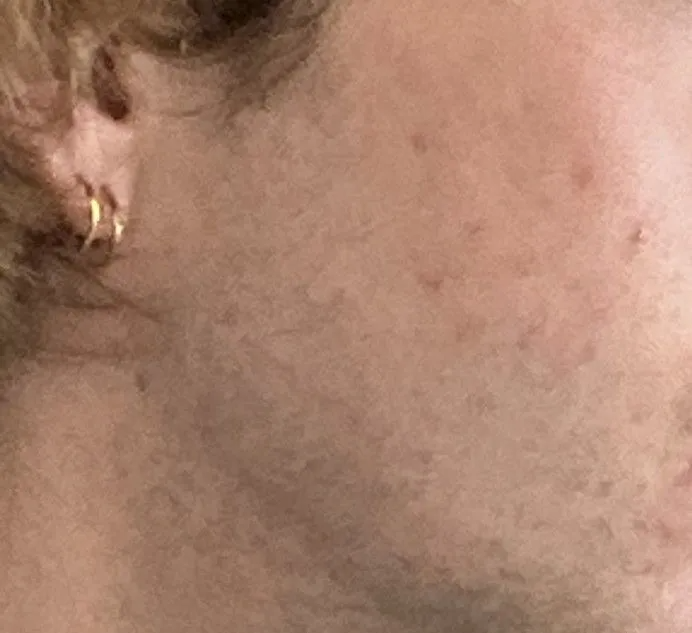Skin Disorders
A skin disorder refers to any condition that affects the skin and causes symptoms like redness, itching, swelling, pain, or changes in appearance. There are many different types of skin disorders that can have a variety of causes.
 Button
Button
Some common categories of skin disorders include:
- Inflammatory skin conditions - Like eczema, psoriasis, acne, and rosacea. This causes red, swollen, irritated skin due to inflammation or an overactive immune response.
- Infections - Such as fungal infections like ringworm, bacterial infections like impetigo, and viral infections like cold sores and warts. These are contagious and caused by germs.
- Pigment disorders - Such as vitiligo, which causes loss of skin color in patches, or melasma, which causes browner patches often due to sun exposure.
- Growths - Such as moles or skin tags which are usually non-cancerous overgrowths of skin cells.
- Precancers/Cancers - Such as actinic keratosis or melanoma, which require diagnosis and treatment from a dermatologist.
- Genetic disorders - Such as ichthyosis, which causes very dry, scaly skin. These run-in families.
- Reactions - Such as eczema, hives, or a medication rash. The skin reacts to an allergen, irritant, or substance.
The treatment for skin disorders depends on the specific diagnosis. Instead of using prescription medications right away, naturopaths first look at adjusting your lifestyle and diet to improve skin from the inside out.
Some things we may recommend:
Our skin analyzer detects all types of skin issues, not just those visible on the surface but also underlying conditions in the deeper layers of skin.
- Eat more foods that are good for your skin - Like fatty fish, walnuts, seeds, greens, and colorful fruits and veggies. These give your skin healthy fats, vitamins, and antioxidants.
- Consider eliminating foods that may trigger inflammation or reactions - For some people this could be dairy, gluten, eggs, or processed foods. See if avoiding any food seems to help.
- Manage stress levels
- Stress can worsen many skin conditions. Make time to relax, get enough sleep, and do things you enjoy.
- Stay hydrated - Drink plenty of water throughout the day for healthy, glowing skin.
- Improve gut health - Taking a probiotic supplement can help get your gut microbiome in better balance, which surprisingly can show in your skin.
- Check for nutrient deficiencies - A naturopath may test levels of nutrients like vitamin D, zinc, or omega-3s and supplement if needed.
- Use gentle, natural skin care products - Look for things like coconut oil, aloe, chamomile, calendula, etc. Avoid fragrances, dyes, and harsh ingredients.
- Professional facials with our Estheticians
The goal is to reduce inflammation from the inside out. Some general treatment options include creams, herbs and minerals, light therapy, changing personal care products, avoiding triggers and multiple different professional facial treatments. With proper care, skin disorders can be managed or resolved.


CONTACT INFORMATION
Call Us: (225) 478-9665
Email: info@biowellnesscenter.com
Visit Us: 13702 Coursey Blvd, Suite 5B, Baton Rouge, LA 70817
OPENING HOURS
- Mon - Wed
- -
- Thursday
- -
- Friday
- -
- Sat - Sun
- Closed
Bio Wellness Center
